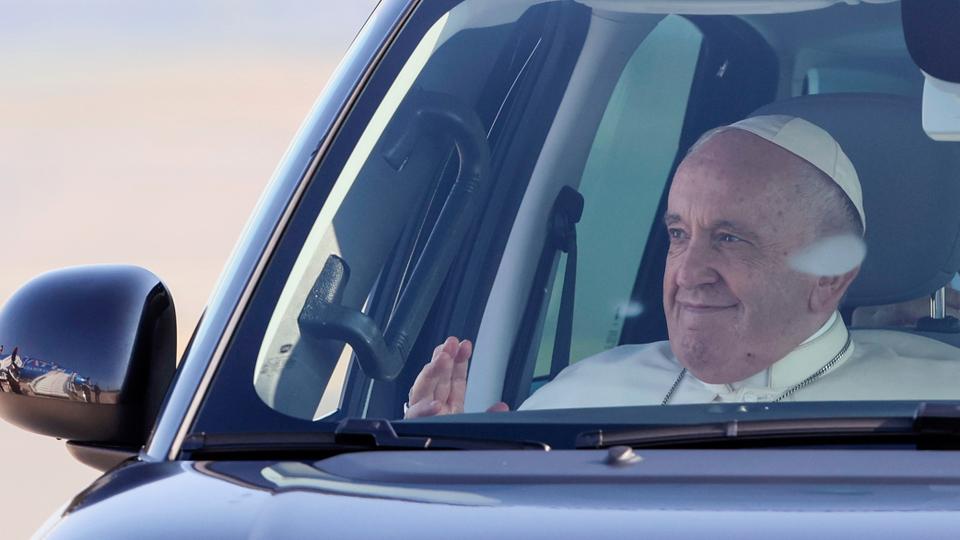The leader previously apologised to survivors who were taken from their homes as children and were subjected to abuse, rape and malnutrition in Canada’s Catholic-run residential schools.

Pope Francis is travelling to Canada for a chance to personally apologise to Indigenous survivors of abuse committed over a span of decades at residential schools run by the Catholic Church.
The head of the world's 1.3 billion Catholics will be met at Edmonton's international airport by Canadian Prime Minister Justin Trudeau after the flight from Rome on Sunday.
The 10-hour flight constitutes the longest since 2019 for the 85-year-old pope, who has been suffering from knee pain that has forced him to use a cane or wheelchair in recent outings.
Francis' Canada visit — which he has called a "penitential pilgrimage" of "healing and reconciliation" — is primarily to apologise to survivors for the Church's role in the scandal that a national truth and reconciliation commission has called "cultural genocide".
From the late 1800s to the 1990s, Canada's government sent about 150,000 First Nations, Metis and Inuit children into 139 residential schools run by the Church, where they were cut off from their families, language and culture.
Many were physically and sexually abused by headmasters and teachers. Thousands of children are believed to have died of disease, malnutrition or neglect.
'Too late'
Since May 2021, more than 1,300 unmarked graves have been discovered at the sites of the former schools.
A delegation of Indigenous peoples travelled to the Vatican in April and met with the pope — a precursor to Francis' six-day trip.
In the community of Maskwacis, some 100 kilometres south of Edmonton, the pope will address an estimated crowd of 15,000 expected to include former students from across the country.
Some see the pope's visit as too little too late, including Linda McGilvery with the Saddle Lake Cree Nation near Saint Paul, about 200 kilometres east of Edmonton.
"For me it's kind of too late, because a lot of the people suffered, and the priests and the nuns have now passed on," said the 68-year-old who spent eight years of her childhood in one of the schools.
"Being in the residential school I lost a lot of my culture, my ancestry. That's many years of loss," she told AFP news agency.
Source: TRTWorld and agencies
Social media is bold.
Social media is young.
Social media raises questions.
Social media is not satisfied with an answer.
Social media looks at the big picture.
Social media is interested in every detail.
social media is curious.
Social media is free.
Social media is irreplaceable.
But never irrelevant.
Social media is you.
(With input from news agency language)
If you like this story, share it with a friend!
We are a non-profit organization. Help us financially to keep our journalism free from government and corporate pressure












0 Comments